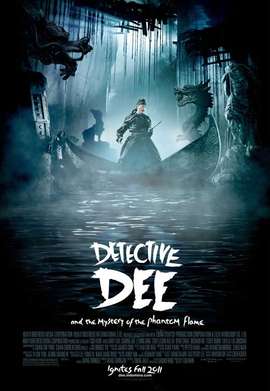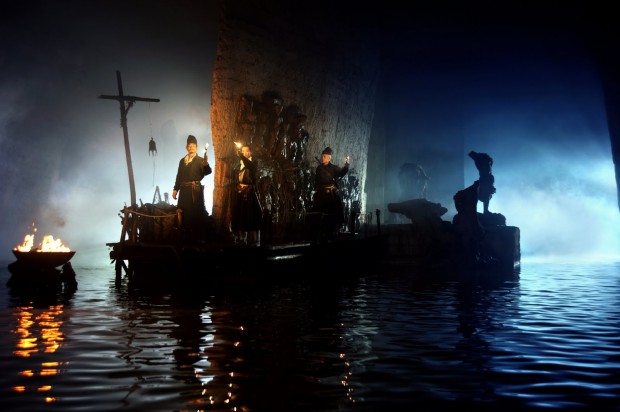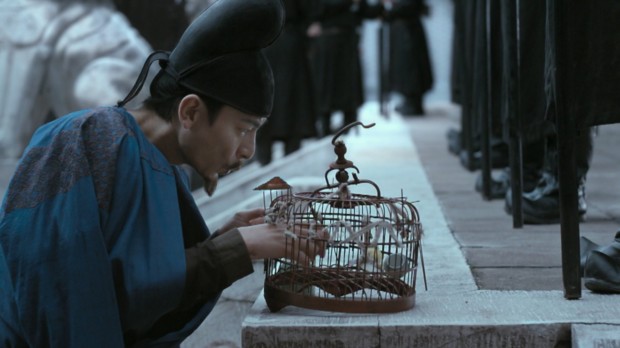Acclaimed Hong Kong director Tsui Hark is known for his diverse blend of mixing genres, jumping across different styles from comedy to drama, romance to crime thriller. However the revered filmmaker has a soft spot for the Wu Xia genre, which helped define his career in the early 90s as he helped shape this peculiar style of cinema. The defining characteristic of the genre consist of a mix of ancient Chinese mythology involving martial artists whose combat is usually portrayed with flair in a complex acrobatic style.
In Detective Dee and The Mystery of the Phantom Flame, Hark attempts to combine the murder mystery qualities of a Sherlock Holmes novel with the more fantastical stylings of the more outlandish Wu Xia style films such as his own classic Zu Warriors from the Magic Mountain. In addition, there is a substantial amount of what you’d come to expect from a martial arts auteur in the form of some fantastic fight set pieces choreographed by Ip Man 2’s Sammo Hung, who also art directed the production with vivid bright colors. Despite all these ingredients for a winning formula recipe, there is a lack of charm that prevents Detective Dee from becoming the sumptuous magical epic whodunit that Hark was hoping for.
Andy Lau plays the titular character Detective Dee, a calculating mind imprisoned for 8 years on the count of treason. On the eve of the coronation of the newly appointed Empress (Carina Lau) and the unveiling of a gigantic Buddha statue, Dee is brought out of retirement to solve a series of murders involving spontaneous combustion. Ironically it was the empress who originally was the cause for the detective’s sentence in the first place, having vowed not to server her. Despite all this, Dee is seemingly the only person capable of solving a crime so complex and shrouded in mystery. As he embarks on his quest for the truth, Dee is accompanied by Shangguan Jing’er (Li Bingbing), a highly skilled martial artist and the right hand ‘man’ of the Empress who is tasked to monitor the tricky detective and make sure he doesn’t stray.
Lau plays Dee with a dash of Sherlock Holmes but predominately feels like a kung-fu James Bond who instantly can decipher clues without a second thought and defeats hordes of enemies with nonchalant expert fighting skills. There is a good amount of humor with the way Lau plays the part, but at the same time the charisma you would expect from such a grand character never seems to permeate. Hark clearly romanticizes the character, but has difficulty eliciting enough reasons for the audience to care about his personality. Likewise, most of the supporting cast really have little to do but look puzzled on screen and shoot suspicious glances at one another before erupting into another insanely intricate battle of lightning quick limbs and camerawork.
Ultimately this is the main appeal of a film like Detective Dee and enough for enthusiasts of the genre to want to check it out. For people unaccustomed to some of the absurdity that the Wu Xia genre is known for, this might be a film that’s hard to digest, and potentially worse, turn off adventurous viewers willing to take a risk. Yet for all its shortcomings there is still a good amount of quirky filmmaking shenanigans, over-the top-sets, ridiculous CG effects (including an absurd fight sequence involving a pack of wild deer) and costumes that could have come straight out of a Cremaster movie. From fire turtles to talking deer gods, Detective Dee is a mixed bag of odd martial arts mystery which despite its illustrious pedigree is a bit lackluster in the end.



